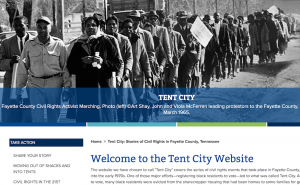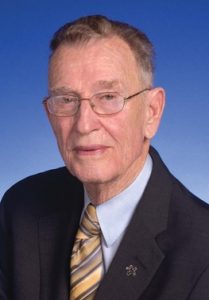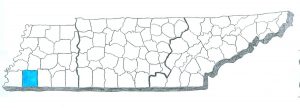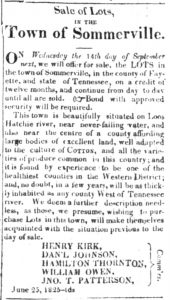How would you like it if your family was kicked out of its home and forced to live in a tent for more than a year? This happened to thousands of people in Fayette and Haywood counties in the early 1960s, in a chapter of the Civil Rights Movement known as “Tent City.” Here’s what happened:
In the 1950s, two-thirds of the people in Fayette and Haywood counties were black, but practically none of them were allowed to vote. In the spring and summer of 1959, many blacks in the two counties, along with black and white Civil Rights activists from other parts of the country, tried to change this by organizing a voter registration drive. This didn’t work either; when black voters turned up to vote in Fayette and Haywood counties on August 1, 1959, some of them were told that they weren’t allowed to vote because it was a “white primary.”
At the time, most black people in this part of Tennessee didn’t own their own land, but worked as sharecroppers on white-owned farms, and lived in shacks located on those farms. When blacks filed a lawsuit to challenge the election, many white landowners evicted them from their property.
Meanwhile, many white businessmen began refusing to do business with black people — which meant black people couldn’t buy gasoline, buy groceries, or go to the doctor, in Fayette and Haywood counties (many began driving to Memphis for their services at that time.)
One of the few black farmers who owned his land was Shephard Towles. When white landowners began evicting their black sharecropper families, Towles built a series of army surplus tents on his land (near Somerville) for these families to live in. (The tents were donated by people of both races). Within a few weeks there were hundreds of people living in Towles’ “tent city.” Soon there was another Tent City near the Fayette County town of Moscow.
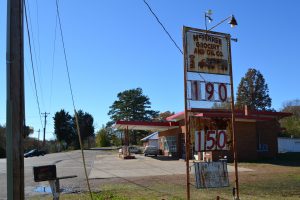
McFerren’s Grocery was an important center for Fayette County’s African-American community during the Tent City Movement.
These families lived in tents for more than a year in conditions we would describe today as inhuman. (Dozens of families shared a single outhouse, for instance.) Fortunately for them, they received food and supplies from a local organization of black leaders known as the Fayette County Civic and Welfare League, from national organizations such as the National Baptist Convention and the NAACP, and from private donors all over the country.
In 1962 a federal court made it clear that landowners could not use economic pressureand evict people as a method of discouraging them to vote. This, however, didn’t help the people living in the tent cities, since it didn’t force landowners to take their tenants back. It took years for many of the tent city residents to find places to live. A lot of them left the county and the state forever. Blacks in Fayette and Haywood counties weren’t really allowed to vote until the national Voting Rights Act of 1965 was enforced in the late 1960s.
For more information on Tent City, click here for a webpage devoted to the movement that is produced by the Benjamin Hooks Center at the University of Memphis.
Fayette County was also the home of John Wilder, a longtime state senator and the Speaker of the Tennessee Senate from 1971 until 2007. During this 36 years as Lieutenant Governor (a position synonmous with Speaker of the Senate in Tennessee), Governor Wilder presided over his governing body with the philosophy that stated “let the Senate be the Senate!”–an expression many heard, but few understood.
Wilder died in 2010.
